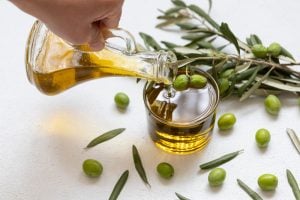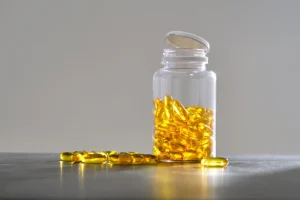Like clockwork, the heart beats steadily—60 to 100 times per minute. A regular heart rhythm keeps blood coursing throughout the body. But when this flow falters, an arrhythmia occurs, causing the heart to beat too slowly or too fast.1Desai DS, Hajouli S. Arrhythmias. StatPearls. 2023;June 5. https://www.ncbi.nlm.nih.gov/books/NBK558923/?report=reader#_NBK558923_pubdet_ The most common arrhythmia is atrial fibrillation (AFib). With AFib, turbulent blood flow can lead to clots, increasing the risk of stroke.2Nesheiwat Z, Goyal A, Jagtap M. Atrial fibrillation. StatPearls. 2023;Apr 26. https://www.ncbi.nlm.nih.gov/books/NBK526072/?report=reader#_NBK526072_pubdet_
AFib is up to three times more common than previously estimated,3Noubiap J, Tan JJ, Teraoka JT, et al. Minimum national prevalence of diagnosed atrial fibrillation inferred from California acute care facilities. JACC. 2024;84(16):1501-1508. https://www.jacc.org/doi/10.1016/j.jacc.2024.07.014 mirroring the 70+ percent increase in strokes worldwide from 1990 to 2021.4GBD 2021 Stroke Risk Factor Collaborators. Global, regional, and national burden of stroke and its risk factors, 1990-2021: a systematic analysis for the Global Burden of Disease Study 2021. Lancet Neurol. 2024;23(10):973-1003. https://www.thelancet.com/journals/laneur/article/PIIS1474-4422(24)00369-7/fulltext
Beyond stroke risk, untreated arrhythmias can contribute to serious cardiovascular diseases, heart failure, and organ damage.5What is an arrhythmia? NIH National Heart, Lung, and Blood Institute. 2022;Mar 24. https://www.nhlbi.nih.gov/health/arrhythmias In some cases, they can trigger sudden cardiac arrest. Early detection and intervention are crucial.
Diagnosing cardiac arrhythmias

In addition to AFib, arrhythmias include ventricular tachycardia, supraventricular tachycardia, and bradyarrhythmia, where the heart beats too slowly.1Desai DS, Hajouli S. Arrhythmias. StatPearls. 2023;June 5. https://www.ncbi.nlm.nih.gov/books/NBK558923/?report=reader#_NBK558923_pubdet_ Common symptoms are heart palpitations, chest pain or discomfort, anxiety, confusion, dizziness, fainting, fatigue, or difficulty breathing.6MacRae CA. Symptoms in atrial fibrillation: why keep score? Circ Arrhythm Electrophysiol. 2009 Jun;2(3):215-7. https://doi.org/10.1161/CIRCEP.109.878355 Sometimes, there are no symptoms. Diagnosis is typically confirmed with an electrocardiogram.1Desai DS, Hajouli S. Arrhythmias. StatPearls. 2023;June 5. https://www.ncbi.nlm.nih.gov/books/NBK558923/?report=reader#_NBK558923_pubdet_
Treatments vary depending on whether the heartbeat is too slow, fast, or irregular and may involve blood thinners and other medications. In severe cases, surgical procedures like catheterization or implanting a device are necessary.
Medical care for irregular heartbeat
Conventional and natural medicine share a similar approach when it comes to managing arrhythmia.
“There are more similarities than differences,” said Kasra Pournadeali, ND, FACN, director of the Northwest Center for Optimal Health in Marysville, Washington. “Once there is a proper diagnosis, I step back and work to identify causes that might not be the focus of conventional cardiology.”
Dr. Pournadeali looks closely at the patient’s diet, addresses any nutrient deficiencies, and identifies negative environmental factors that may be contributing. It’s also important for the patient to achieve and maintain a healthy weight.
“It depends on the type of arrhythmia, but there are a number of approaches I use with my patients,” he says, “including dietary changes to increase nutrient density, therapeutic nutrition with dietary supplements, and removing irritants like alcohol, caffeine, or accumulated environmental toxins. I will also prescribe medications to stop aberrant electrical activity in the heart. When appropriate, I will refer a patient to a mainstream cardiologist for procedures like cardioversion, catheter ablation, or placement of an implantable cardioverter defibrillator.”
Foods that optimize heart rhythm

The Mediterranean diet—rich in extra virgin olive oil and omega–3 fatty acids—is linked to a lower risk of AFib.7Neumann FA, Jagemann B, Makarova N, et al. Mediterranean diet and atrial fibrillation: lessons learned from the AFHRI case-control study. Nutrients. 2022;14(17):3615. https://doi.org/10.3390/nu14173615,8Martinez-Gonzalez MA, Toledo E, Aros F, et al. Extra virgin olive oil consumption reduces risk of atrial fibrillation: the PREDIMED trial. Circulation. 2014;130(1):18-26. https://doi.org/10.1161/circulationaha.113.006921,9Guardino ET, Li Y, Nguyen X, et al. Dietary omega-3 fatty acids and the incidence of atrial fibrillation in the million veteran program. Am J Clin Nutr. 2023;118(2):406-411. https://doi.org/10.1016/j.ajcnut.2023.06.001
However, not all sources of omega–3 have the same benefits, and some may even be harmful. An exploratory analysis found consuming more than four servings per week of dark fish, such as herring, mackerel, and most deep-sea fish, was associated with a significantly higher risk of AFib.10Shen J, Johson VM, Sullivan LM, et al. Dietary factors and incident atrial fibrillation: the Framingham Heart Study. Am J Clin Nutr. 2011;93(2):261-266. https://doi.org/10.3945%2Fajcn.110.001305 Further research is needed to confirm the relationship.
Nutrients, herbs, and supplements

Dietary supplements can serve as complementary treatments, offering additional nutritional support to reduce the risk of arrhythmia, manage existing arrhythmias, and address underlying inflammation.
“Although studies are conflicted, I do consider omega–3 supplementation in my patients with AFib,” says Dr. Pournadeali. “I also consider magnesium supplementation because low serum magnesium levels have been linked with the development of AFib in individuals without cardiovascular disease.11Khan AM, Lubitz SA, Sullivan LM, et al. Low serum magnesium and the development of atrial fibrillation in the community: the Framingham Heart Study. Circulation. 2013;127(1):33-8. https://doi.org/10.1161/circulationaha.111.082511 There are many other dietary supplements and plant medicines, such as crataegus, Leonurus, NAC (N–acetyl cysteine), and taurine, which all have a long history of safe use, good biochemical basis, and growing evidence of efficacy for arrhythmias.”
Vitamins C and E
Vitamin C is another key nutrient Dr. Pournadeali recommends, as research suggests it can lower AFib rates.12Eslami M, Badkoubeh R, Mousavi M, et al. Oral ascorbic acid in combination with beta-blockers is more effective than beta-blockers alone in the prevention of atrial fibrillation after coronary artery bypass grafting. Tex Heart Inst J. 2007;34(3):268-274. https://www.ncbi.nlm.nih.gov/pmc/articles/PMC1995047 A combination of vitamin C and vitamin E has been shown to reduce arrhythmia,13Szyller J, Jagielski D, Bil-Lula I. Antioxidants in arrhythmia treatment—still a controversy? A review of selected clinical and laboratory research. Antioxidants. 2022;11(6):1109. https://doi.org/10.3390%2Fantiox11061109 with one study reporting a 68 percent lower incidence of post-operative AFib with combination therapy (vitamin C, E, and omega–3s).14Guo X, Yan X, Chen Y, et al. Omega-3 fatty acids for postoperative atrial fibrillation: alone or in combination with antioxidant vitamins. Heart Lung Circ. 2014;23(8):743-50. https://doi.org/10.1016/j.hlc.2014.02.018
Treating arrhythmias effectively
A naturopathic doctor can provide comprehensive arrhythmia treatment targeting the condition’s root causes. Their goal is to manage an irregular heart rate and enhance cardiovascular health, reducing the risk of future complications.
“To help patients get the best of both conventional and naturopathic medicine, it’s important to choose a naturopathic doctor who is well versed in cardiology and has a strong understanding of mainstream medical approaches,” says Dr. Pournadeali.
Footnotes
- 1Desai DS, Hajouli S. Arrhythmias. StatPearls. 2023;June 5. https://www.ncbi.nlm.nih.gov/books/NBK558923/?report=reader#_NBK558923_pubdet_
- 2Nesheiwat Z, Goyal A, Jagtap M. Atrial fibrillation. StatPearls. 2023;Apr 26. https://www.ncbi.nlm.nih.gov/books/NBK526072/?report=reader#_NBK526072_pubdet_
- 3Noubiap J, Tan JJ, Teraoka JT, et al. Minimum national prevalence of diagnosed atrial fibrillation inferred from California acute care facilities. JACC. 2024;84(16):1501-1508. https://www.jacc.org/doi/10.1016/j.jacc.2024.07.014
- 4GBD 2021 Stroke Risk Factor Collaborators. Global, regional, and national burden of stroke and its risk factors, 1990-2021: a systematic analysis for the Global Burden of Disease Study 2021. Lancet Neurol. 2024;23(10):973-1003. https://www.thelancet.com/journals/laneur/article/PIIS1474-4422(24)00369-7/fulltext
- 5What is an arrhythmia? NIH National Heart, Lung, and Blood Institute. 2022;Mar 24. https://www.nhlbi.nih.gov/health/arrhythmias
- 6MacRae CA. Symptoms in atrial fibrillation: why keep score? Circ Arrhythm Electrophysiol. 2009 Jun;2(3):215-7. https://doi.org/10.1161/CIRCEP.109.878355
- 7Neumann FA, Jagemann B, Makarova N, et al. Mediterranean diet and atrial fibrillation: lessons learned from the AFHRI case-control study. Nutrients. 2022;14(17):3615. https://doi.org/10.3390/nu14173615
- 8Martinez-Gonzalez MA, Toledo E, Aros F, et al. Extra virgin olive oil consumption reduces risk of atrial fibrillation: the PREDIMED trial. Circulation. 2014;130(1):18-26. https://doi.org/10.1161/circulationaha.113.006921
- 9Guardino ET, Li Y, Nguyen X, et al. Dietary omega-3 fatty acids and the incidence of atrial fibrillation in the million veteran program. Am J Clin Nutr. 2023;118(2):406-411. https://doi.org/10.1016/j.ajcnut.2023.06.001
- 10Shen J, Johson VM, Sullivan LM, et al. Dietary factors and incident atrial fibrillation: the Framingham Heart Study. Am J Clin Nutr. 2011;93(2):261-266. https://doi.org/10.3945%2Fajcn.110.001305
- 11Khan AM, Lubitz SA, Sullivan LM, et al. Low serum magnesium and the development of atrial fibrillation in the community: the Framingham Heart Study. Circulation. 2013;127(1):33-8. https://doi.org/10.1161/circulationaha.111.082511
- 12Eslami M, Badkoubeh R, Mousavi M, et al. Oral ascorbic acid in combination with beta-blockers is more effective than beta-blockers alone in the prevention of atrial fibrillation after coronary artery bypass grafting. Tex Heart Inst J. 2007;34(3):268-274. https://www.ncbi.nlm.nih.gov/pmc/articles/PMC1995047
- 13Szyller J, Jagielski D, Bil-Lula I. Antioxidants in arrhythmia treatment—still a controversy? A review of selected clinical and laboratory research. Antioxidants. 2022;11(6):1109. https://doi.org/10.3390%2Fantiox11061109
- 14Guo X, Yan X, Chen Y, et al. Omega-3 fatty acids for postoperative atrial fibrillation: alone or in combination with antioxidant vitamins. Heart Lung Circ. 2014;23(8):743-50. https://doi.org/10.1016/j.hlc.2014.02.018





